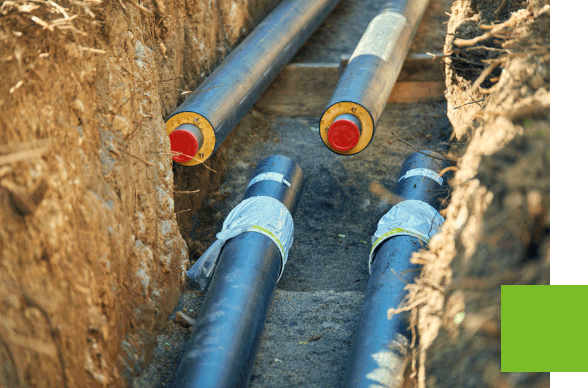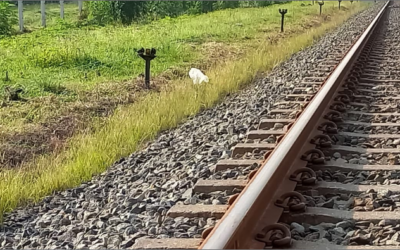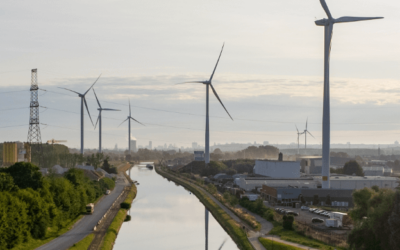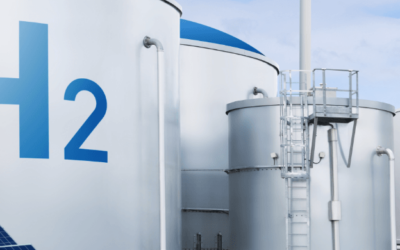heat grid
Heat networks Investment Grant (WIS).
The Heat Networks Investment Grant is a Dutch grant scheme for the construction of new efficient heat networks (energy-efficient district heating and cooling). The grant is only for heat networks that make existing homes natural gas-free. The heat network then provides heating for spaces and hot tap water for the houses.
When it was published in early June 2024, it was announced that the budget had been increased from 150 to 400 million euros and the maximum grant amount from 20 to 30 million euros. The WIS 2024 has remained broadly the same compared to the 2023 opening. However, there are a number of smaller changes. For example, when it opens in 2024, more emphasis will be placed on the substantiation of the signed contracts for home connections. In addition, it is possible to give a discount on the standing charge (this is possible up to a minimum of € 240). If this is the case, it will also have to be substantiated. There is also a higher subsidy contribution (€ 7,000) for small-scale consumer connections that are not rental properties. From 1 July 2024, the WIS will be open until 13 December 2024.
In short
WIS overview
For whom?
Heat companies and businesses that invest in the construction of a new heating network. Emphasis is placed on parties with advanced plans who can quickly start the construction of the heating network. Provinces or municipalities may participate in a project (as shareholders participating in such a business), but cannot receive grants themselves.
When to apply?
Submitting grant applications is possible from 1 July 2024 (9:00 am) until no later than 13 December 2024 (5:00 pm). Applications will be processed in order of receipt ("first come, first served").
How much?
The grant reimburses a maximum of 45% of the project costs, or a maximum of €6,000 for a rental property and a maximum of €7,000 for other small-scale consumer connections: the limit that is reached first applies as the maximum.
The grant never amounts to more than 30 million euros per project (heating network).
For what?
The grant is intended as an impulse to bridge the 'unprofitable top' of heating network investments (the difference between the eligible investment costs and the operating profit). The subsidy can never be more than 100% of this unprofitable top.
Overview of
WIS categories
The WIS grant is only possible for small-scale consumer and/or block connections in existing buildings. Heating networks serving both existing and new-build homes are allowed, but the new-build portion falls outside the grants. Heating networks aimed at both small-scale consumers and large-scale consumers (such as utility buildings/greenhouses/industry) are in principle allowed, but the large-scale consumer portion falls outside the grants (unless it concerns block connections).


MEET THE REQUIREMENTS
WIS Grant Criteria
We mention here some important grant conditions:
The project may not have started before the grant application has been submitted.
The project must consist of (own) investments in the construction of a new heat network. The project is not profitable without subsidy.
The heat network must meet the requirements for energy-efficient district heating and cooling (from point 124 of Article 2 of the AGVV).
The heat network must be intended for small-scale consumer connections (maximum 100 kW) and/or block connections in existing buildings.
The heat network must supply heat to at least 250 small-scale consumer connections (spread over at least 5 buildings).
Within 1 year after the grant has been awarded, the applicant will make the final investment decision. Construction will start within 3 years, realisation will take place within 7 years.
It must be possible to finance one's own share of the project costs.
It must be demonstrated that it is feasible that at least 60% of the number of small-scale consumer connections in the area to be connected, as included in the project plan, will be connected. This must be done within the set realisation period of 7 years
WHY THIS GRANT?
Purpose of the WIS grant
New district heating networks in the built environment are important for achieving CO2 reduction targets. Their construction is often challenging because it typically involves investments with an “unprofitable top.” The WIS scheme aims to accelerate the construction of these networks by offering investment grants. The grant also prevents the costs of the unprofitable top from being passed on to end-users (through the BAK, contribution to connection costs). Other grant schemes may also be of interest for district heating networks, such as SDE++, EIA, ISDE, and SAH. EGEN can analyze these options and provide an estimate of the maximum grant income for each business case.
“In my role as a consultant at EGEN, my work encompasses a wide range of tasks throughout the entire lifecycle of European funding applications. My main areas of interest include water, environment and renewable energies. “
Contact Carol Trisorio ﹥


KEEP UP TO DATE
News
EGEN supports ProRail with successful LIFE application for nature-friendly vegetation removal along railway tracks
The new call of the European LIFE programme has been opened in April. LIFE is the European Union’s funding instrument for projects focused on nature, environment, climate, and the energy transition....
Two new Horizon calls published for sustainable energy
The European Commission's Horizon Europe Work Programme for 2023-2024 has allocated 188.6 million EUR to support sustainable energy projects within Cluster 5. This cluster covers the areas of...
Three tips for a successful EHB Auction proposal
The European Hydrogen Bank (EHB) is an initiative of the European Commission established in 2023 with the aim to support among other things the EU domestic renewable hydrogen production. At EGEN, we...


